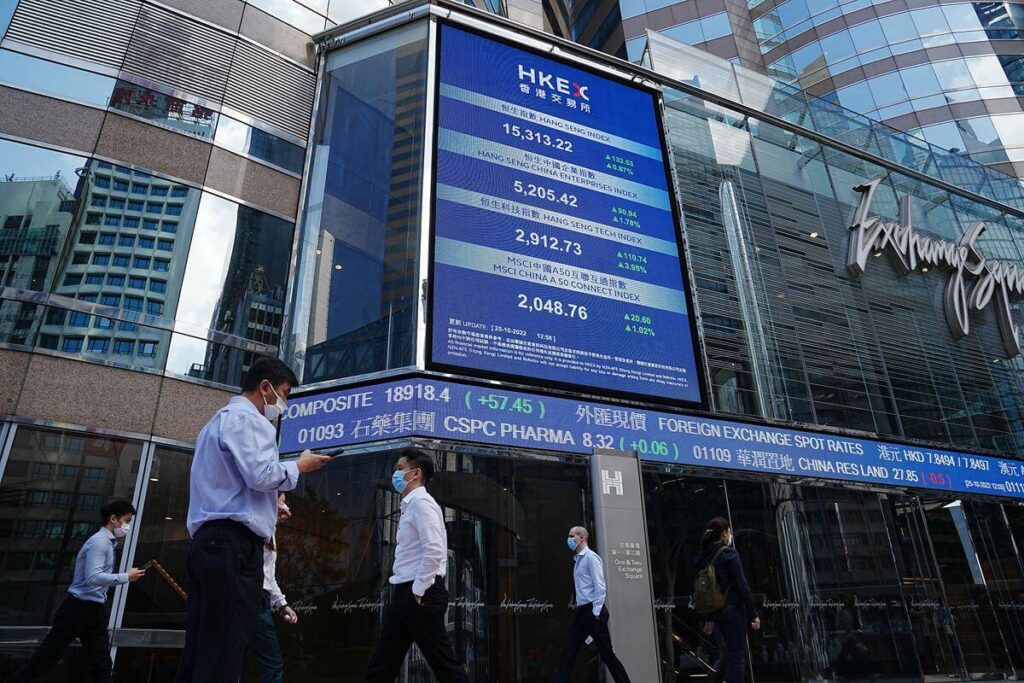Asian markets experienced a downturn with varied performances across different regions, as attention shifted towards forthcoming growth and inflation data. The New Zealand dollar saw a significant drop amidst concerns over inflation outlook.
The kiwi depreciated by 1%, paralleled by a decline in government bond yields, following the Reserve Bank of New Zealand’s less hawkish stance on inflation. The bank highlighted a decrease in most measures of price expectations, resulting in a more cautious approach. Despite economists’ expectations, the central bank maintained policy rates unchanged.

In Hong Kong, stock movements were volatile in response to the government’s budget announcement. While developer shares surged following the removal of property curbs, the tech sector faced declines, leading to a mixed performance. Similarly, Chinese equities retraced after a recent rally, with traders eyeing upcoming manufacturing reports and a crucial political meeting in Beijing for market direction.
Analysts noted that Hong Kong’s budget announcement favored property firms and travel-related shares, suggesting potential relaxation of mortgage rules by the city’s monetary authority.
Meanwhile, Japanese equity benchmarks remained relatively stable, while South Korea witnessed a notable increase of over 1% in shares. In the US, futures saw marginal changes despite a decline in consumer confidence, marking the first drop in four months.
Market sentiment remained cautious, with investors hesitant to make significant commitments ahead of key economic data releases, including US GDP and inflation figures. Additionally, a flurry of central bank speeches further contributed to market uncertainty.
In the US, expectations regarding Federal Reserve rate cuts have moderated, aligning more closely with policymakers’ indications. Traders are now anticipating a reduction of no more than 75 basis points in 2024. This adjustment, coupled with a surge in corporate issuance, has provided alternative investment opportunities for yield-seeking investors.
Elsewhere, global finance chiefs expressed optimism about the possibility of a soft landing for the global economy, citing faster-than-expected disinflation as a positive indicator. In corporate news, concerns over potential US sanctions led to heightened selling pressure on WuXi AppTec Co., while shares of Chinese gaming company NetEase Inc. surged following approvals from Beijing.
In Japan, KFC Holdings saw a significant surge in stock value after reports suggested that Mitsubishi Corp. might divest its entire stake in the company.
Commodity markets witnessed mixed movements, with oil prices retreating after a two-day gain, amidst conflicting signals about US inventories and OPEC+ supply cut extensions. Similarly, iron ore prices resumed their decline, reflecting uncertainty about China’s steel demand ahead of the traditional peak construction season.
Key events scheduled for the week include economic data releases from Eurozone and the US, as well as speeches from central bank officials and the G-20 finance ministers’ meeting in Sao Paulo.









